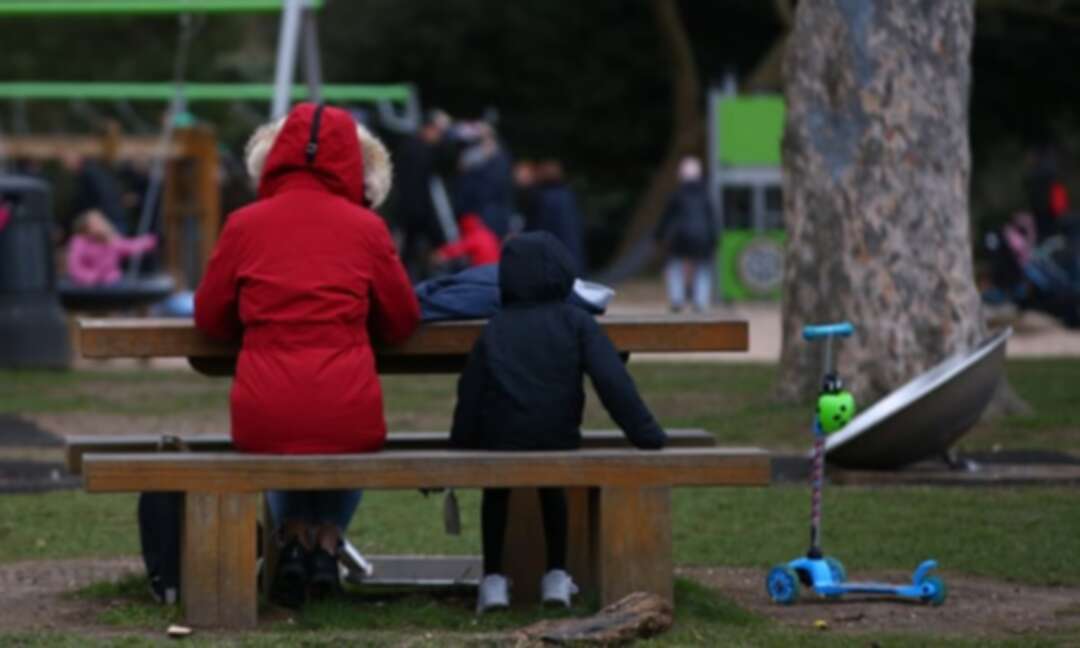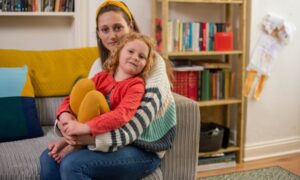-
Boris Johnson urged to allow children to play together in England

Under-5s exempt from two-person Covid rule, but children aged 5-11 are being discriminated against, say lawyers
The ban on children playing together outdoors in England must be lifted as it is discriminatory and potentially unlawful, lawyers and children’s groups have said.
In a letter to Boris Johnson in the week that schools were allowed to reopen, family groups reported signs of mental distress and poor health among young children who have missed playing and socialising.
Since 6 January across England, and last year in places under tier 3 rules, the law has stated that only two individuals can meet from different households. Under-fives are exempt but campaigners say that children aged five to 11, who are not old enough to meet a friend alone, have been severely affected by the rules.
Jennifer Twite, of Just for Kids Law, said the rules were challengeable under the Equality Act 2010 and the European convention on human rights.
“The current guidance in England unfairly discriminates against children and disproportionately impacts single parents. Under the one-to-one rule, adults and older children have been able to meet a friend for exercise if they can do so alone but this leaves children who are over five unable to see anyone. This leaves single parents, who are more likely to be women, also unable to take advantage of the rule because they can’t bring their children if they meet another adult.”
Government guidelines have also stressed that playgrounds, while open, must not be used for socialising.
In a letter to the prime minister, the groups Just for Kids Law, Playing Out and Play England point to the rules in Scotland that have always allowed under-12s to mix with friends outdoors. On Monday, Nicola Sturgeon relaxed rules specifically for teenagers so they can meet in groups of four.
Ingrid Skeels is co-director of the group Playing Out in Bristol. She said the rules needed to be changed urgently, not at the end of March. “Every day counts and the current ban gives a wrong and fearful message that outdoor play and socialising isn’t safe. “
She said the group had heard from many parents who have been too afraid of being fined or told off for breaking rules to take their children outside.
“The government has never clarified that play is exercise. We know from speaking to families this had a very bad impact and we have seen that the families most fearful of breaking the rules are the most disadvantaged ones.”
Alex Foy lives in a flat in south London and said she felt she should be keeping her son, Jamie, at home as much as possible.
“The rules made it clear we should stay indoors. I know a walk is acceptable but kids need other kids. Taking him to the park without other children made him even more disheartened and lonely so we avoided it. We did our exercises running up and down the stairs in our flats most days. He was a brave boy but he is a sociable child and he really suffered, he became withdrawn and looked unwell.
“He was so excited for school but school isn’t play. He urgently needs to just be himself in a space with other children he cares about.”
Daisy Peters, a single mother in Devon, added her views to the letter, saying: “My five-year-old is an only child and she has been badly affected by lack of socialising. Her behaviour has become challenging, she is far less cheerful. Her sleep has also become disturbed.”
 Daisy Peters with her daughter, Lily.
Daisy Peters with her daughter, Lily.Shani, a project worker in Bristol, contacted Playing Out because she was so concerned about the impact the rules were having on local families.
“Children have been very subdued with us, many have barely been leaving the house because their parents felt it wasn’t allowed. We fear what we are seeing is just the tip of the iceberg.”
A government spokesperson said: “We prioritised the physical, mental and emotional wellbeing of young people and made opening schools the first step as we cautiously ease out of lockdown. Schools and after-school clubs are now open.
“We fully recognise the importance of exercise to children and know that the risk of transmission is greater indoors than outdoors, which is why playgrounds have also remained open.”
Last month ministers were forced to backtrack over guidance that stated only children without gardens could use playgrounds, after an incident where children were told to go home by police while building a snowman.
source: Harriet Grant
Levant
You May Also Like
Popular Posts
Caricature
BENEFIT Sponsors BuildHer...
- April 23, 2025
BENEFIT, the Kingdom’s innovator and leading company in Fintech and electronic financial transactions service, has sponsored the BuildHer CityHack 2025 Hackathon, a two-day event spearheaded by the College of Engineering and Technology at the Royal University for Women (RUW).
Aimed at secondary school students, the event brought together a distinguished group of academic professionals and technology experts to mentor and inspire young participants.
More than 100 high school students from across the Kingdom of Bahrain took part in the hackathon, which featured an intensive programme of training workshops and hands-on sessions. These activities were tailored to enhance participants’ critical thinking, collaborative problem-solving, and team-building capabilities, while also encouraging the development of practical and sustainable solutions to contemporary challenges using modern technological tools.
BENEFIT’s Chief Executive Mr. Abdulwahed AlJanahi, commented: “Our support for this educational hackathon reflects our long-term strategic vision to nurture the talents of emerging national youth and empower the next generation of accomplished female leaders in technology. By fostering creativity and innovation, we aim to contribute meaningfully to Bahrain’s comprehensive development goals and align with the aspirations outlined in the Kingdom’s Vision 2030—an ambition in which BENEFIT plays a central role.”
Professor Riyadh Yousif Hamzah, President of the Royal University for Women, commented: “This initiative reflects our commitment to advancing women in STEM fields. We're cultivating a generation of creative, solution-driven female leaders who will drive national development. Our partnership with BENEFIT exemplifies the powerful synergy between academia and private sector in supporting educational innovation.”
Hanan Abdulla Hasan, Senior Manager, PR & Communication at BENEFIT, said: “We are honoured to collaborate with RUW in supporting this remarkable technology-focused event. It highlights our commitment to social responsibility, and our ongoing efforts to enhance the digital and innovation capabilities of young Bahraini women and foster their ability to harness technological tools in the service of a smarter, more sustainable future.”
For his part, Dr. Humam ElAgha, Acting Dean of the College of Engineering and Technology at the University, said: “BuildHer CityHack 2025 embodies our hands-on approach to education. By tackling real-world problems through creative thinking and sustainable solutions, we're preparing women to thrive in the knowledge economy – a cornerstone of the University's vision.”
opinion
Report
ads
Newsletter
Subscribe to our mailing list to get the new updates!






















